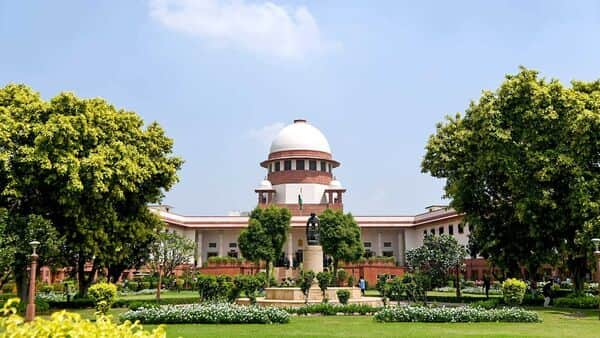(A) Constitution of India, Article 105 and 194 – Parliamentary privilege – Corruption – Whether Parliamentary privileges attract immunity to a member of Parliament or of the Legislatures who engages in bribery in connection with their speech or vote – Held that clause (2) of Article 105 does not grant immunity against bribery to any person as the receipt of or agreement to receive illegal gratification is not “in respect of” the function of a member to speak or vote in the House – Prosecution for bribery is not excluded from the jurisdiction of the criminal court merely because it may also be treated by the House as contempt or a breach of its privilege – Judgment of the majority on this aspectin Narsimha Rao’s case overruled.
(Para 113 and 188)
(B) Constitution of India, Article 105 and 194 – Parliamentary privilege – Bribery – Whether a claim to privilege in a particular case conforms to the parameters of the Constitution is amenable to judicial review – Held that an individual member of the legislature cannot assert a claim of privilege to seek immunity under Articles 105 and 194 from prosecution on a charge of bribery in connection with a vote or speech in the legislature – Such a claim to immunity fails to fulfil the twofold test that the claim is tethered to the collective functioning of the House and that it is necessary to the discharge of the essential duties of a legislator – Articles 105 and 194 of the Constitution seek to sustain an environment in which debate and deliberation can take place within the legislature – This purpose is destroyed when a member is induced to vote or speak in a certain manner because of an act of bribery – The expressions “anything” and “any” must be read in the context of the accompanying expressions in Articles 105(2) and 194(2) – The words “in respect of” means ‘arising out of’ or ‘bearing a clear relation to’ and cannot be interpreted to mean anything which may have even a remote connection with the speech or vote given – Bribery is not rendered immune under Article 105(2) and the corresponding provision of Article 194 because a member engaging in bribery commits a crime which is not essential to the casting of the vote or the ability to decide on how the vote should be cast – The same principle applies to bribery in connection with a speech in the House or a Committee – Corruption and bribery by members of the legislatures erode probity in public life. (Para 188)
(C) Constitution of India, Article 105 and 194 – Parliamentary privilege – Must bear a functional relationship to the discharge of the essential duties of a legislator – Held that the assertion of a privilege by an individual member of Parliament or Legislature would be governed by a twofold test – First, the privilege claimed has to be tethered to the collective functioning of the House, and second, its necessity must bear a functional relationship to the discharge of the essential duties of a legislator. (Para 91)
(D) Doctrine of stare decisis – Interpretation of constitution – Held that doctrine of stare decisis provides that the Court should not lightly dissent from precedent – The doctrine is not an inflexible rule of law, and it cannot result in perpetuating an error to the detriment of the general welfare of the public – Apex Court may review its earlier decisions if it believes that there is an error, or the effect of the decision would harm the interests of the public or if “it is inconsistent with the legal philosophy of the Constitution” – In cases involving the interpretation of the Constitution, Apex Court would do so more readily than in other branches of law because not rectifying a manifest error would be harmful to public interest and the polity – The period of time over which the case has held the field is not of primary consequence – The judgment of the majority in PV Narasimha Rao, which grants immunity from prosecution to a member of the legislature who has allegedly engaged in bribery for casting a vote or speaking has wide ramifications on public interest, probity in public life and parliamentary democracy – There is a grave danger of this Court allowing an error to be perpetuated if the decision were not reconsidered. (Para 188.1)
SUPREME COURT OF INDIA
2024 STPL(Web) 139 SC
[2024 INSC 161]
Sita Soren Vs. Union Of India
Criminal Appeal No. 451 of 2019-Decided on 4-3-2024
https://stpllaw.in/wp-content/uploads/2024/04/2024-STPLWeb-139-SC.pdf







